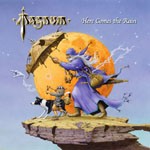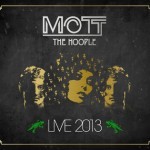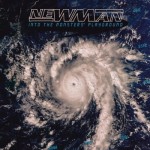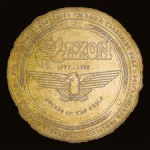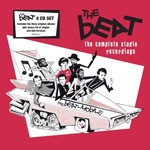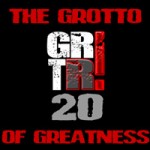Share the post "Book review: BOBBY RUSH with Herb Powell – I Ain’t Studdin Ya: My American Blues Story"
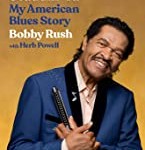
Hachette Books [Publication date 15.07.21]
Grammy award winner Emmett Ellis Jnr aka Bobby Rush’s ‘I Ain’t Studdin’ Ya: My American Blues Story’ is easily one of the best musical biographies of the year.
It’s the life and time of a blues man, filtered by his intuitive biographer Herb Powell. Rush turns out to be perceptive commentator with a philosophical view of the world that mirrors the saying, ‘What goes round comes round.’
His prismatic approach is fuelled by a Zen like appreciation of his place in the world, in which blues is the colour of his prism.
The feel of the book is impressionistic and he’s analytical by turns, while his essential flow is aided by 100 plus very short chapters which deal with people, places, incidents that are glued together by his homespun philosophy, gleaned from growing up in the south and a life lived on the road.
‘I Aint Studdin’ Ya’ has the feel of a time and place, the latter being defined a third of the way through the book, when he reflects that clubs he spends his life working in are: “places of comfort and retreat.” This lead him to his enduring niche: “Today I’m called The King of the Chitlin’ Circuit. And I’m proud of what that means in terms of me being a survivor.”
When reflecting on the genesis of 50’s rock and roll, he says: “The only thing that white folks did to create rock n’ roll was Alan Freed giving it the name rock and roll.”
He recalls the transition form R&B to rock and roll, on the back of artists such as Fats Domino, Chuck Berry, Big Joe Turner and Ray Charles, whose material he came to include in his own set: “Moving music forward with its gumbo like mix of gospel and blues. All them songs were catchy and almost irresistible. All they needed for this good-ass, feelgood, change your life music was a white face to sing it.”
And in that observation alone, Rush shares with us his eye for commerce, his adaptability and the kind of musical versatility that has enabled him to enjoy success on his own terms well into his 80’s.
And though the book is essentially a chronological account of his struggle for that success while remaining independent and staying true to his southern roots, it’s his colourful combination of jive talk, imagery and metaphor that draws the reader into the life of a blues based entertainer who pays due reverence to the music, but is constricted by it.
He tells us early on that: There was nothing but a spirit of: “do” in my house.” Inspired by his parents and his preaching father in particular, he relocates to Chicago.
‘I Ain’t Studdin Ya’ sometimes broaches the structure of a Socratic dialogue, as his biographer Herb Powell dutifully records Rush’s experiences and thoughts through which he searches for universal applications and meaning. It’s honest and exhilarating account of a life lived and one which he is still very much enjoying.
Taking the book title to mean ‘I’m not wasting my time judging you, or listening to gossip etc, it’s a book that radiates positivity and a passion for the music he plays and the lifestyle he lives.
He’s not called “The King of the Chitlin’ Circuit” for nothing. And as he says deep in the book: “That name was chosen for me. But in that choice would come a recognition that I had waited for my entire life.”
Refreshingly he adapts to the way he sees contemporaries like BB King and later Luther Allison crossing over the blues to an international market.
Allison later tells Rush of the new expectations of the blues in Europe, which doesn’t include his vaudeville elements. And yet though he again adapts, he never gives up on what he knows best, both musically and culturally and manages to successfully come out the other side as an internationally recognised award winning elder statesman of the genre he’s played for over 50 years.
He tells us early on: “A lot of my song ideas are just a play on words from the natural-world lessons of my boyhood. And he cites ‘Chicken Heads’, ‘Camel Walk’ and ‘Porcupine Meat’ as examples, while later adding : “Looking back, I think my country-boy way of talking gave me some blues cred.”
He learns his craft as an all rounder as a drummer, singer, dancer, harp player and joke telling performer.
Throughout his career he never loses sight of the importance of being an entertainer, effectively learning his craft with the black vaudeville world of the Rabbit Foot Minstrels.
And yet he’s perceptive enough to throw in a stinging coda when she says: “Every Black entertainer who sings dances or tells a joke with a smile on their face is playing to a stereotype. Because the Black entertainer is at the core – literally in the DNA – of American entertainment culture, it deserves to be examined by people much smarter than me.”
Much later in the book he concludes: “It doesn’t matter who sings the blues. It only matters that proper credit is given to the men and women who created it.”
His only major career regret in life appears to be a lack of a proper education, though his use of language here is full of almost filmic metaphors that bring his story to life with real vitality.
When he applies what he has learnt in a musical context, he takes us to the heart of a groove: “The big schooling was that when you stopped playing (guitar), even your silence had a groove – but you would not feel that groove until you started playing again.”
His moves to Chicago where he tells us: “Having a gun is like having a snow shovel, it’s a necessity.”
He gets mentored by Rufus Thomas, who wisely tells his protégé: “Ain’t No shame in doing what you gotta to get where you wanna go.”
The real joy of this book lies in Rush’s linguistic minutiae. He describes Sonny Boy Williamson’s harp playing thus: “Sonny’s playing was so good it was like a juicy conversation – full of gloomy truths and joyful lies.”
He’s equally good when remembering Little Walter’s harp playing: “Walter could make that thing weep like you were burying your own mama, or he could make that thing praise the goodness of the Lord.”
He increasingly uses his name Bobby Rush in the third person, as he almost imperceptibly becomes a blues brand.
Through Muddy Waters he comes to realise the rich pickings for blues artist in Europe, but doesn’t immediately immediately go there, a decision he partly regrets, except he’s still make good money in the States.
He steers his own course as the blues scene changes and becomes smoother and ultimately retreats back to the Chitlin’ circuit pursue his consistent aim of: “A little money in my pocket; A song that was at least known regionally; And just the feelin’ that I was close to my dream.”
There ‘s a possibility with Chess Records, and he opens for the likes of Ray Charles and Little Richard while also learning the ropes of production and honing his won style on folk-funk style on 7 labels in 7 years.
He continues to live by the Chitlin’ Circuit motto: “Can I put on a good show.” So when popular r&b declines, his style of southern blues though still under some people’s radar endures sufficiently to sell sold plenty of records.
The rest of his journey is an account of his success as realising his aim of being an independent musician, showman, promoter, booker and label boss, while regaining long overdue recognition from both his peers and the international blues scene
He’s also cast a pivotal figure in a high profile blues documentary, which he neatly summarises as: “My life is the current version of what the old cats did.”
It neatly brings things full circle for true survivor and a blues innovator with an undiminished twinkle in his eye. *****
Review by Pete Feenstra
Featured Artist: JOSH TAERK
Since early 2020 Josh has been entertaining us with exclusive monthly live sessions, streamed via Facebook.
In 2023 he signed a recording deal with Sony in Canada and released a new single on 15 September.
Next session: Sunday 1 December
Check out videos here: https://www.facebook.com/getreadytorockradio
David Randall presents a weekly show on Get Ready to ROCK! Radio, Sundays at 22:00 GMT, repeated on Mondays and Fridays), when he invites listeners to ‘Assume The Position’. The show signposts forthcoming gigs and tours and latest additions at getreadytorock.com. First broadcast on 3 November 2024.
UK Blues Broadcaster of the Year (2020 and 2021 Finalist) Pete Feenstra presents his weekly Rock & Blues Show on Tuesday at 19:00 GMT as part of a five hour blues rock marathon “Tuesday is Bluesday at GRTR!”. The show is repeated on Wednesdays at 22:00, Fridays at 20:00). This show was first broadcast 29 October 2024.
How to Listen Live?
Click the programming image at the top of the page (top right of page if using desktop)
Listen via Windows Media Player. Click or tap here and “open file”
Listen via other media player (eg. VLC) Click or tap here and “open file”
Get Ready to ROCK! Radio is also in iTunes under Internet Radio/Classic Rock
Listen in via the Tunein app and search for “Get Ready to ROCK!” and save as favourite.
More information and links at our radio website where you can listen again to shows via the presenter pages: getreadytorockradio.com
Power Plays w/c 11 November 2024
ARCANE MOON Hello Sun (indie)
S8NT ELEKTRIC XTC (Long Branch Records)
ARCANA KINGS Here We Go (Curtain Call Records)
KLOGR face The Unknown (Zeta Factory)
BEYOND UNBROKEN Dance With The Dead (FiXT)
REVENGIN Decadent Feeling (Wormholedeath)
Featured Albums w/c 11 November 2024
09:00-12:00 The Best of 2003-2023 (Melodic Rock)
12:00-13:00 The Best of 2003-2023 (Melodic Hard Rock)
14:00-16:00 The Best of 2003-2023 (Singer Songwriter)
Popular (last 10 days)
Share the post "Book review: BOBBY RUSH with Herb Powell – I Ain’t Studdin Ya: My American Blues Story"


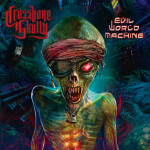
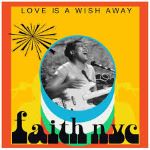


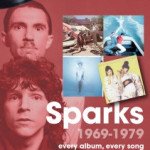
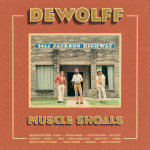




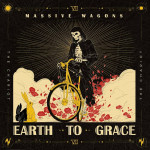
 PDF - you can delete unwanted sections
PDF - you can delete unwanted sections



